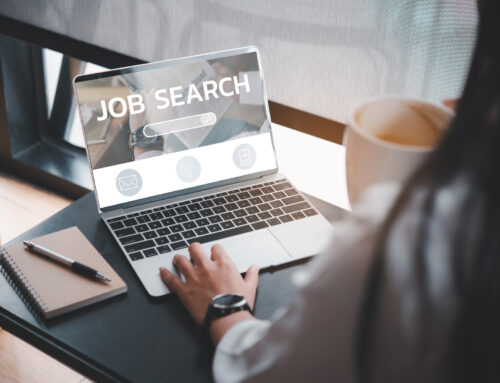What is Health Anxiety and How Can it Be Managed?
We all experience anxiety at some point and most have a general idea of what anxiety is, what causes it, and basic ways to address it. Anxiety becomes problematic when it begins to intrude in one’s life in terms of their daily functioning. This includes a person’s ability to function socially, at home, within their place of work, with friends, in public spaces. People who experience problematic anxiety can often experience anxiety in several different ways, including in general (referred to as generalized anxiety), social anxiety/social phobia, obsessive compulsive disorder, panic disorder, and agoraphobia (fear of leaving one’s living space). A lesser-known anxiety issue many people experience is recognized by mental health practitioners as health anxiety. Health anxiety was once referred to by many as ‘hypochondria’ (hypochondriasis) which involved extreme worry about, and fear of, being or getting seriously ill. Health anxiety is a more recognized and appropriate term now as it refers to more specific aspects and characteristics of those who have such significant and intrusive fears/worries concerning their health.
One of the most significant aspects of anxiety is that of experiencing a perceived threat. Often with this perceived threat causing distress and impaired ability to function. For example, someone may feel anxiety when driving down a dark back road in the middle of the night because they fear that something bad could happen (even though it’s unlikely). Because the person believes the potential for danger is not only real, but significant, anxiety is the result.
Health anxiety refers to when one believes that there is a threat to their health which in turn, triggers anxiety that considerably impacts their daily life, social functioning, and several other areas which includes intrusive symptoms, thoughts, and behaviours. Common health concerns experienced by those with health anxiety include: Having/getting a cancer diagnosis, multiple sclerosis, heart issues, stomach disorders, spinal and joint diseases/disorders, and/or Alzheimer’s etc. Those with health anxiety can also worry in the same way about not just themselves, but loved ones as well.
When Health Anxiety Becomes a Serious Issue
It’s important to be clear that most people experience milder forms of health anxiety when experiencing such things as waiting for medical test results, when a new lump or sore is noticed on their body, or a new sensation is felt (Ex, slight pains, numbness, tingling, muscle twitching, etc.). It is when such worries become so challenging and intrusive that they are:
- Causing significant distress and impacting one’s ability to live a healthy, enjoyable, daily lifestyle.
- Magnified in one’s mind to the point that the beliefs and worries are out of proportion to the actual likelihood of one having a serious medical issue.
- Repetitive web searches for confirmatory information of the believed disease, disorder, medical issue, etc., which I refer to as ‘Dr. Google.’
- Persistent to this point of completing excessive ‘checking’ behaviours (of the believed symptoms), reassurance seeking from family, friends, and medical professionals or avoiding medical professionals and health information. *These behaviours are also called safety behaviours which are used in an effort to prevent anxiety and fears from becoming a reality. It’s important to be mindful of safety behaviours as they:
1. Inhibit us from challenging our fears (which is often used during counselling to address health anxiety).
2. Cause stress to actually increase, thus creating more anxiety (E.g., family member’s becoming frustrated and upset with the person experiencing health anxiety, thus furthering the anxiety).
3. When one’s health anxieties do NOT ‘come true,’ this can result in attribute this ‘relief’ to the safety behaviour(s). This then leads to further safety behaviours about other health concerns and increasing health anxiety in the future.
4. Focusing on themselves and their body more than they had in the first place. This can result in further ‘searching’ for other possible health related signs and symptoms.
It is also important to note that, even when someone has real symptoms of a medical condition, this is not the central issue when it comes to experiencing health anxiety. The primary issue when it comes to experiencing health anxiety is how one responds to and manages the experienced symptoms. In fact it has been proven that when a person is under a high amount of stress and their autonomic nervous system has been overly active for an extended period of time, what are referred to as somatic symptoms can occur. Somatic symptoms are true physical symptoms, but are symptoms that are actually caused by the anxiety itself. Such symptoms can include:
- Rapid heart rate
- Muscle spasming
- Physical pain (often in the back, chest, shoulders, and head)
- Headaches
- Muscle tension and/or twitching
- Digestive and gut issues
- Breathing issues
Approaching Health Information in A Healthy Way
Being able to seek, see, hear, and read health information realistically cannot be avoided and may be needed for oneself, a friend, or family member. Just as someone who experiences mental health issues related to eating (E.g., bulimia nervosa), this person cannot fully avoid eating as it is essential to one’s health and survival. What is most important for those with health anxiety seeking health information in a safe and healthy manner is being highly mindful of the following:
- Not being fully aware of the words and terms we use, with such things as web searches, that result in biased information can make one’s health anxiety worse. When those with health anxiety aren’t mindful of this, they end up focusing on articles that speak to more serious disorders related to symptoms they may be experiencing (as opposed to articles that provide more clear and balanced information). This can then further result in ‘filtering out’ any realistic/more rational information and focusing only on the information that speaks to more serious disorders and conditions, further affirming one’s fears.
- Asking oneself these questions:
- Does the article I’m reading come from a reputable source (a recognized health organization, university, healthcare facility, licensed/registered medical professionals who specialize in the subject matter)?
- Does the article refer to evidence-based research and/or reference other articles and research from reputable authors and sources (I.e., peer-reviewed and properly referenced) and is it similar to information from other reputable sources and authors?
- Is the information detailed and current and is it based on/mention people experiencing similar symptoms who fall within your age range, gender, height, weight, etc.)?
- Is the author, article, and publisher, website, magazine, or video free of commercial interests? In other words, are they touting any sort of product?
How and Where Can One Get Help for Health Anxiety?
Seeking the help of a registered social worker, psychotherapist, or clinical psychologist is a very effective way to help one manage their health anxiety. Such registered professionals have not only years of training and education in how to treat mental health issues, they also hold proven and effective skills, strategies, and tools to treat health anxiety. Such counselling and therapeutic approaches that have proven to be effective in treating health anxiety include: mindfulness-based cognitive behavioural therapy, mindfulness practices, somatic-based therapy, and solution-focused therapies. By seeing a therapist or counsellor who focuses on teaching clients how to manage the intrusive thoughts and urges caused by health anxiety, one can significantly reduce the compulsive behaviours and further distress and physical symptoms one is experiencing in a much more manageable way. This can then lead to someone then being able to lead a happier, peaceful, present, and less anxiety-filled life both individually and socially!
This blog was written by RSW Jordon Iorio, for more information or to book a free consultation, call us at 519.302.2300 or email reception@brantmentalhealth.com












 Sharon Walker, MSW, RSW
Sharon Walker, MSW, RSW Jordon Iorio Hons. BA, RSW
Jordon Iorio Hons. BA, RSW Christine Bibby, B.S.W., M.S.W., R.S.W.
Christine Bibby, B.S.W., M.S.W., R.S.W. Brianna Kerr, RSW
Brianna Kerr, RSW Danielle Vanderpost, RSW
Danielle Vanderpost, RSW Daniela Switzer, MA, C.PSYCH
Daniela Switzer, MA, C.PSYCH Tammy Adams
Tammy Adams Jade Bates, RMT
Jade Bates, RMT Caitlin Schneider
Caitlin Schneider Dr. Crysana Copland
Dr. Crysana Copland
 Amy Dougley
Amy Dougley Emily Green
Emily Green Bill Dungey, RSW
Bill Dungey, RSW



 Jessica Moore, RSW
Jessica Moore, RSW Abigail Wragge, RSW
Abigail Wragge, RSW